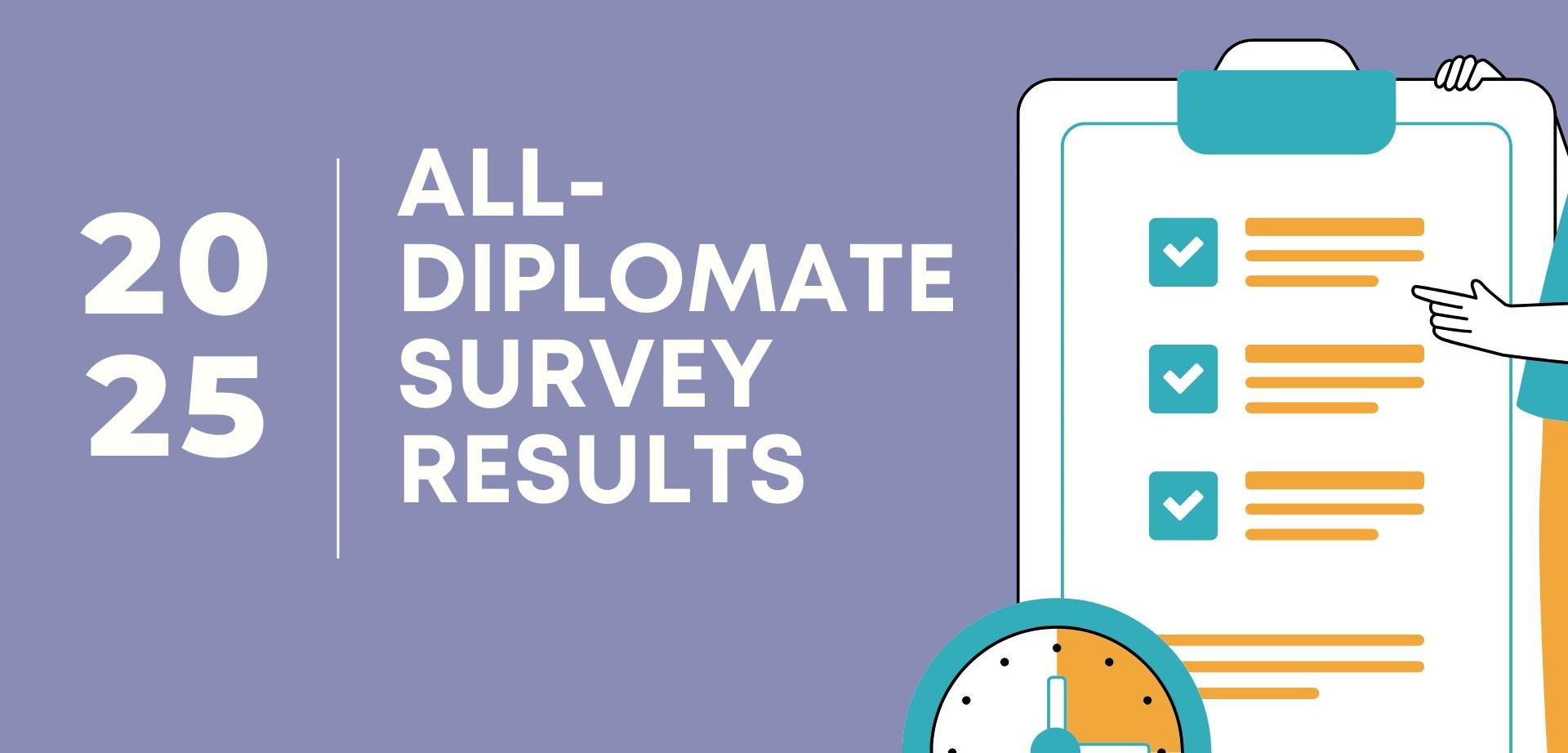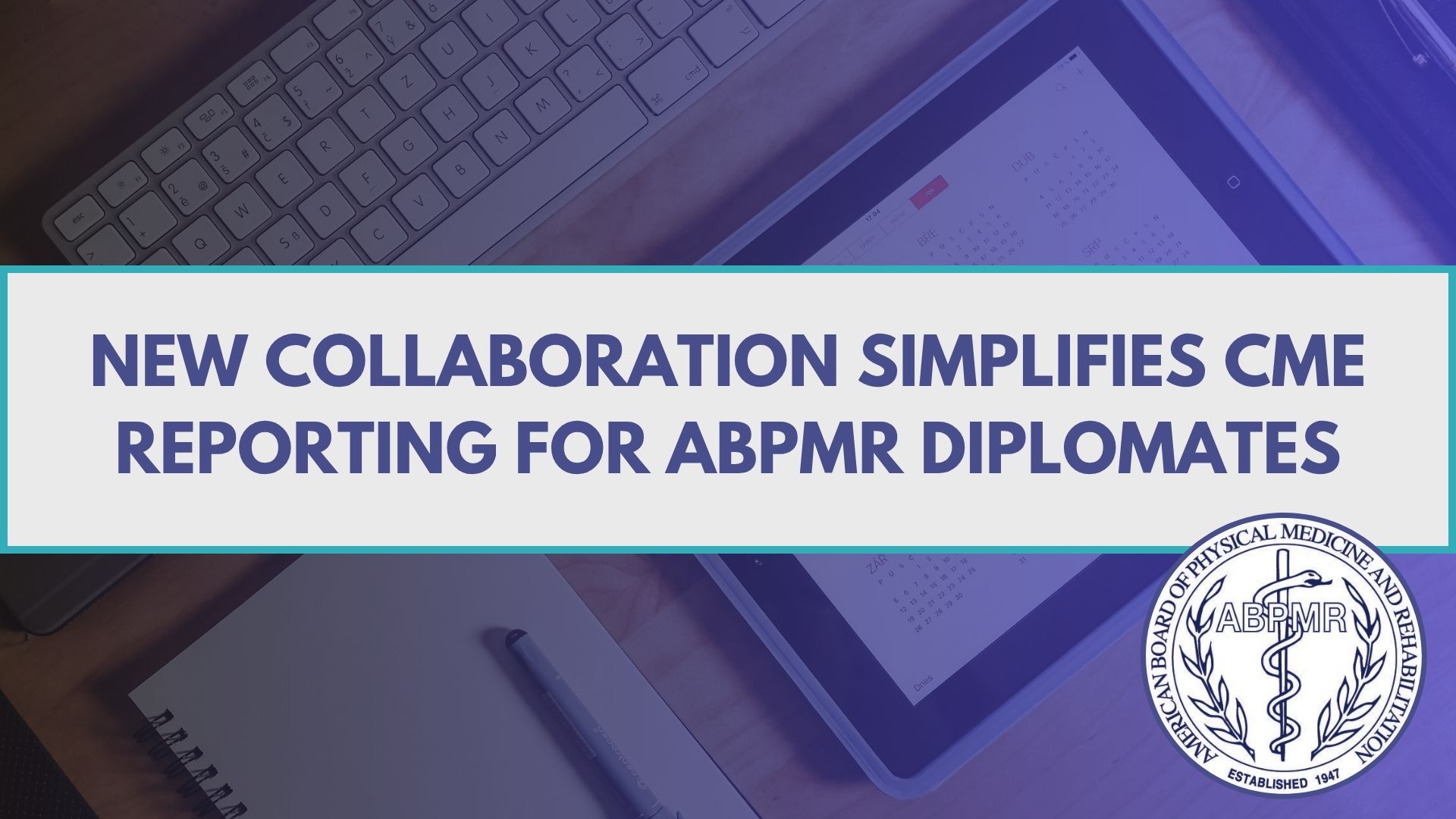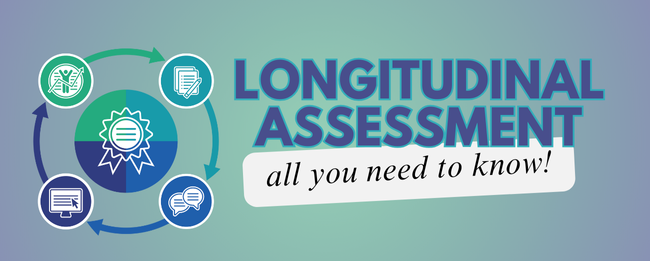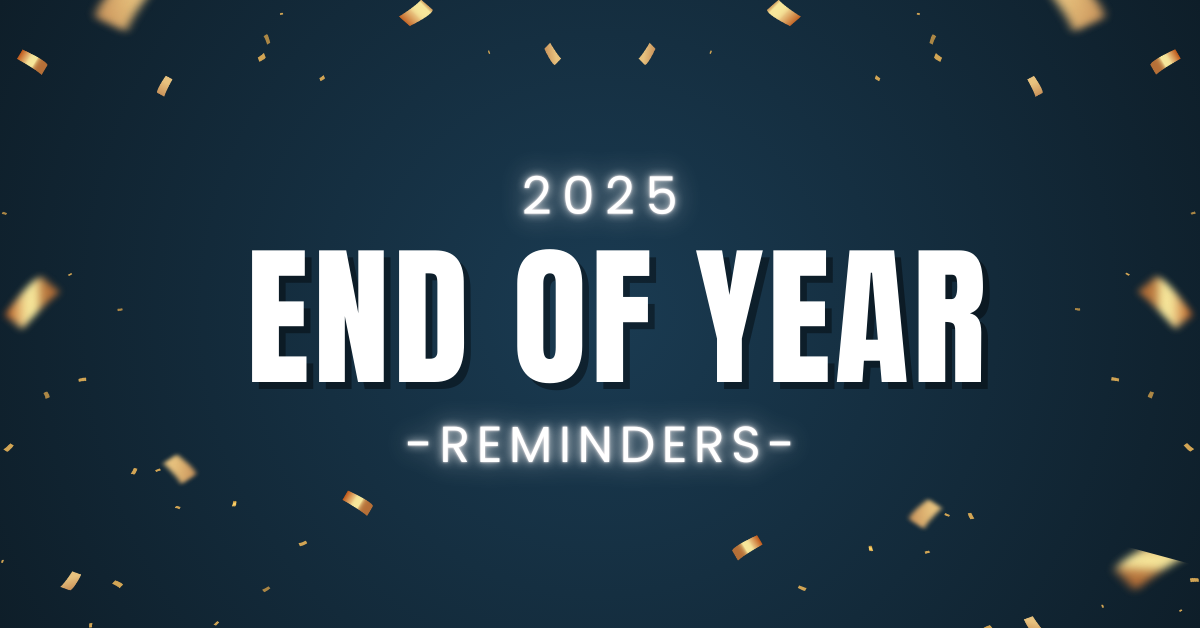CC
2021 CC Survey Results Preview
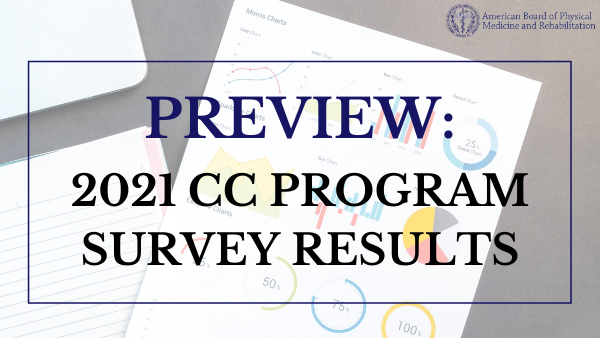
It’s been seven years since the ABPMR sent the MOC (Maintenance of Certification) Program survey to all diplomates to gather feedback on the program’s relevance, value, and burden. Your responses on the MOC Survey in 2014 influenced the changes and improvements that have been made to certification requirements over the past several years, resulting in the launch of the CC (Continuing Certification) Program in January 2021.
With the launch of the new program, it was time to again hear your constructive feedback on the CC Program and recent changes to requirements. We sent the CC Survey to all ABPMR diplomates in August 2021, and received responses about LA-PM&R (longitudinal assessment for PM&R), QI (quality improvement), professionalism, CME (continuing medical education), and more.
Today, we are sharing a preview of results from the 2021 survey and comparing this feedback to the 2014 survey. We want to highlight the positive response to LA-PM&R and overall sentiment for the CC Program that you shared this summer.
Your feedback is valuable and will be used by the board of directors to continue improving and creating tools that have real value to you in your practice. Thank you for your time and honesty; your responses have been seen and heard!
MOC Program vs CC Program
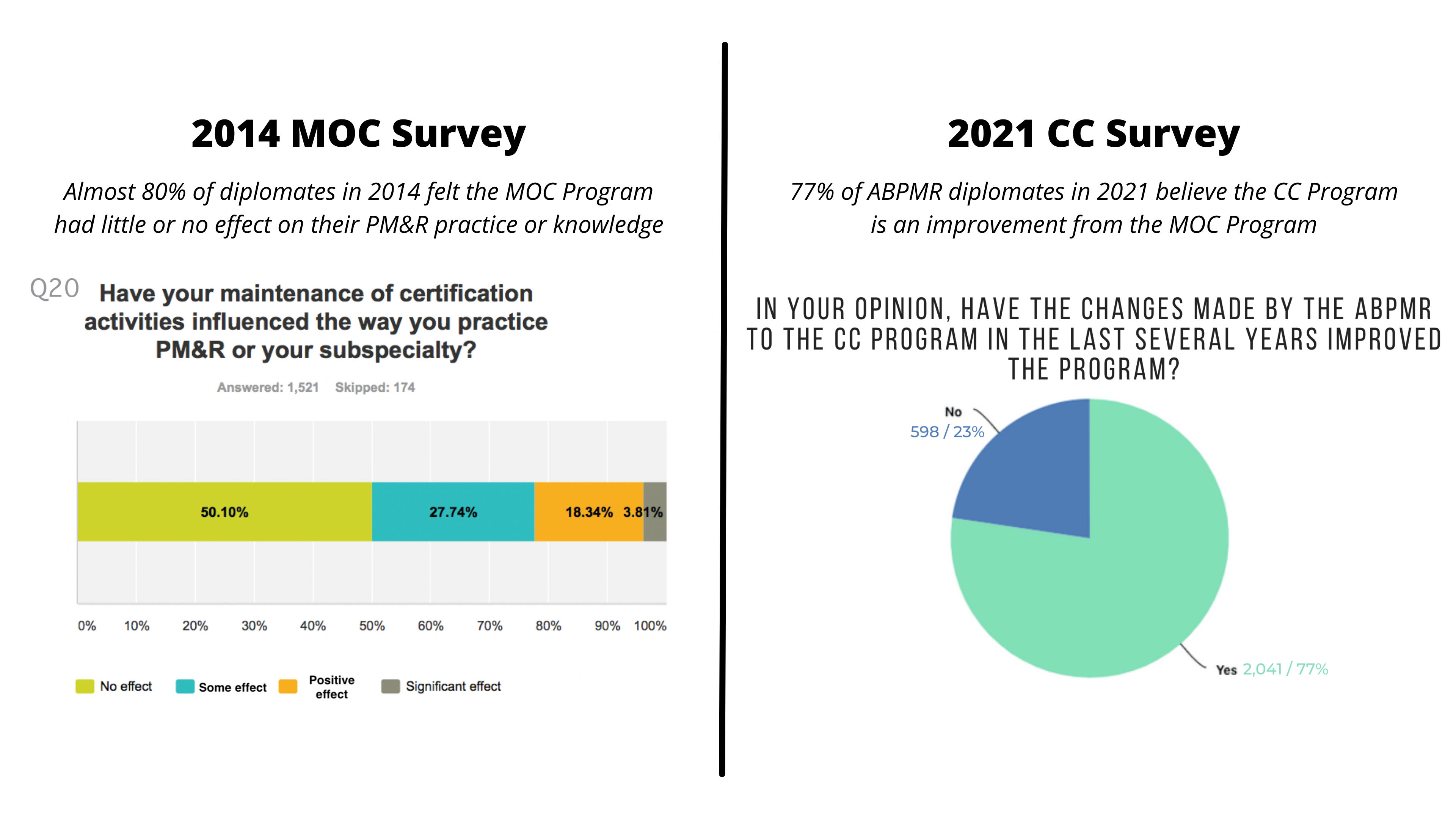
Back in 2014, ABPMR diplomates were participating in the MOC Program; this included taking the MOC Examination every 10 years. At this time, anti-MOC sentiment was building and diplomates in all specialties were voicing concerns about the state of MOC requirements. The ABPMR was trying to meet American Board of Medical Specialties (ABMS) mandates while creating a program that was relevant to everyday physiatrists’ practices.
We asked you to share your feedback on the program and ideas for improvement on the MOC Survey in 2014. The 2014 survey results guided the decisions and changes that led to the CC Program in order to create a more meaningful, valuable, and relevant certification program. The improvements made since 2014 are:
- Piloting, validating, and implementing LA-PM&R, the evidence-based learning and assessment platform featuring customizable content and built-in learning tools. Diplomates answer quarterly questions with re-attempt questions in subsequent quarters to reinforce learning. Learning is in your control with the ability to create goals and deadlines
- Eliminating the MOC Examination, which was heavily criticized in the 2014 survey as burdensome, time-consuming, and not valuable
- Developing and releasing 20 free guided quality improvement (QI) project templates based on topics commonly seen in a physiatry practice to make QI more relevant for you
- Creating the QI project wizard and more educational content and resources about QI to help you complete a project that makes a true difference in your practice and counts for CC credit
- Combining two areas of the CC Program by offering self-assessment CME (SA-CME) credit for each quarter of full participation in LA-PM&R to save you time and resources
- Designing and launching a new Certification Dashboard with enhanced features to guide you through certification cycle requirements with ease, as well as give you tools to take your certification requirements into your own hands
The 2021 survey showed a majority of diplomates received these changes as positive, and many respondents commented the new program is flexible, efficient, and better for their learning than MOC.
Respondents said:
“[The new program] is more relevant and more meaningful, less burdensome, and integrates nicely into my everyday practice.”
“I appreciate the greater flexibility in activities that are pertinent to my practice and patients.”
MOC Examination vs LA-PM&R
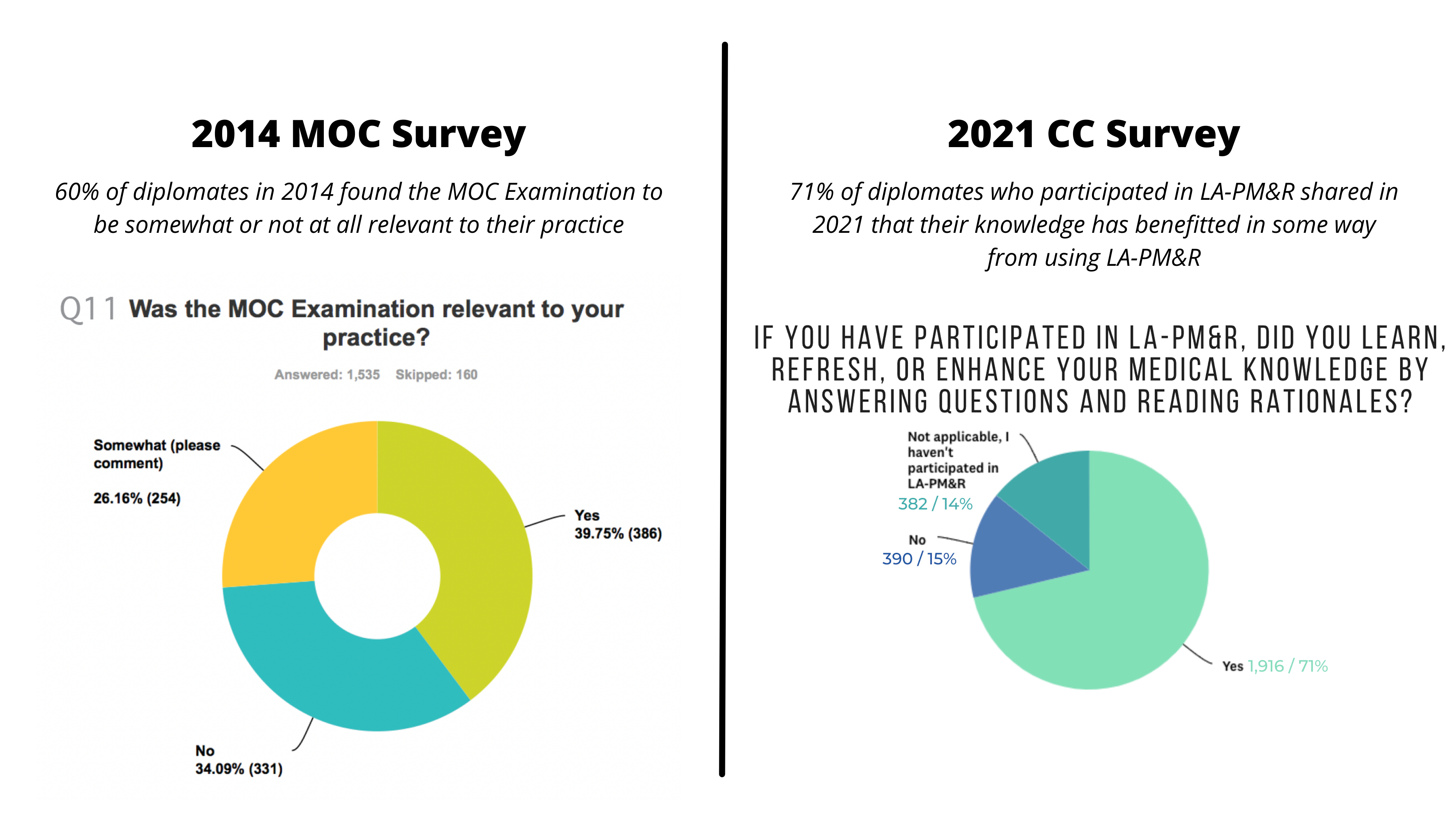
As mentioned, the MOC Examination was eliminated in response to diplomate feedback and replaced with LA-PM&R. This platform uses shorter, more frequent, lower-stakes assessments that you complete on your own schedule. Unlike the high-stakes MOC Examination, which measured what you knew on the day of the exam, LA-PM&R is a continuous learning tool to help you stay up to date for your patients and offer the best care possible.
The platform allows for customization so questions are relevant to your unique practice, provides real-time analysis of knowledge gaps, and gives tools and resources for improvement. There are many reasons the ABPMR is enthusiastic about the change to LA-PM&R, including that it directly addresses diplomate feedback for increasing relevance and value and decreasing burden.
Overall, diplomates find LA-PM&R much more relevant, convenient, and valuable than the MOC Examination. Respondents commented about the helpful tools within the platform and knowledge they have gained using LA-PM&R.
Respondents said:
"[LA-PM&R] stimulates thinking. Adds value to improve patient care. Increases my confidence in practicing evidence based patient care."
“Very concise, relevant, and efficient learning method. LA-PMR has me looking up key areas to understand them better. Finds my weak areas for me, particularly as it pertains to clinical management. Fits my current lifestyle, where I am in my career.”
Thank you again to diplomates who participated in the 2021 survey! We are listening to your feedback and continuing to make changes over time so the program is relevant and valuable for you, your practice, and your patients. More survey results will be released in the coming months.
